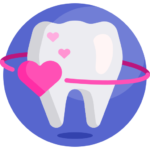No products in the cart.

3d Art
Interior










We understand that many of us are afraid of going to the dentist. This oftentimes becomes a roadblock in receiving the necessary care one needs. For this very reason, We offer True Sedation dentistry, not just a pill prior to your appointment. We provide safe and effective IV sedation. Imagine going to the dentist and not remembering the visit. IV sedation provides this level of comfort for you. Dr. Fatemi has years of experience in providing this service and holds a Mastership in Anesthesiology.
Dental Implants have become an effective method of replacing missing teeth, as well as anchors for partial and full dentures. This service can be a life changing experience where one can return to full function. Implants can be performed for most adults. At our office, we offer the entire course of treatment from the surgical placement to restoration under one roof. Our patients do not have to travel from office to office as is the case in other establishments.
We understand sometimes emergencies can not be put off, which is why we offer extended hours as well as a 24 hour answering service. Please book your appointment directly at our website and be seen the same day. We will take care of your dental issue and offer all the options available to you. We also have payment plans available to you through www.carecredit.com, an outside financial partner.
About
We at Fatemi Family Dentistry are committed to giving you the smile you love to have.
In this endeavor, we provide a healthy, trusting environment for all our patients. We maintain a positive dental experience. Our Staff is committed to offer our patients the most up to date treatments. Above all, we like to establish a long term relationship with our patients so that we can achieve their goals over many years of service.
Our practice is serving patients in Lexington Park & Gaithersburg is the foundation of our practice. By staying abreast of the latest dental technologies and procedures, Fatemi Family Dentistry, Park Dental & Gaithersburg Sedation Dentistry can provide the most advanced, personalized dental care for you and your family. Our Practice will make you’ll feel at ease with our friendly staff, caring Lexington Park & Gaithersburg dentists and comfortable office setting.
get in touch
Why Us
We cater to Cowards. We provide Sedation to totally relax the patients and give them an experience that is free of stress. Our patients tell us that they do not remember the visit after sedation. We also have electronic anesthesia where patients often comment on how painless it is. Whatever it takes, we make sure that our patients are comfortable.
0
0
%
0
0
0
m
Meet Us
Family & Cosmetic Dentist
Dr. Fatemi has had the honor of receiving his Mastership from the Academy of general Dentistry in June of 2021. This award is only given to 2% of the dentists in the United States. It required over 10 years of diligent study in all aspects of dentistry, taking over 1200 hours of continuing education. Dr. Fatemi also holds a Mastership from Society of Dentist Anesthesiologists. He provides IV sedation for his anxious as well as special needs patients. He is among a very few general dentists in Maryland that hold this special license. Dr. Fatemi is also a Fellow at the international Congress of Oral Implantologist. He has over 20 years of experience placing and restoring implants.
TECH
We are among the few practices that have Cone beam radiography where we can take 3-D images, CBCT. This is essential for our patients who are interested in Implants and wisdom teeth extractions. We also use 3-D radiography in Root Canal Therapy to view and detect infection and canals. Overall, we have state of the art technology, but at the end of the day, it is our one on one relationship that matters the most. It is the relationship between our staff and our patients that sets us apart.
We are also fully digital where we use Digital radiography, digital records and digital imaging. We also provide Electronic Anesthesia that is a rarity in dental offices. Calajet Device, (https://www.youtube.com/watch?v=2q3LGkRacXQ) is a new method in delivery of anesthesia to the patient where we can only anesthetize a single tooth rather than the entire area. patients do not have a fat lip when they leave our office. They can go back to their everyday life as before without having to worry about their speech or eating ability
discover our tech
Vouchers









Dr Fatemi treated me with great care and I recommend him for your dental work. Before the process he explained to me how everything would go. A very detailed explanation with pictures and all. It has been two weeks since my sinus lift bone grafting. I was so scared but Dr. Fatemi and his staff calmed my nerves and I had very little swelling non pain at all. I am in the process of getting an implant on tooth number 10.
Google Verified
Came in for emergency root canal after having moved to Maryland with no dentist! Thank heaven I found this practice. Very thorough, caring, and they listen/explain everything to you. I am very phobic about dentists because I have had some bad/painful experiences in the past. You can definitely trust this practice hands down.
Google Verified
Patients
VIEW MORE
https://www.youtube.com/watch?v=0IEzMe3AEvIhttps://www.youtube.com/watch?v=JCon5JWTODQhttps://www.youtube.com/watch?v=NmHlatTvxNYhttps://www.youtube.com/watch?v=Ku8J_L-27E0




